Communication Health Resources for Indigenous Populations
Thank you for visiting the Communication Health Resources for Indigenous Populations page on the Speech and Hearing BC website. Over the past several months, the Indigenous Services Working Group has been pulling together the resources that you see below. We want to thank our colleagues at First Nations Health Authority for reviewing these resources and for guiding our discussion about our next steps.
The Indigenous Services Working Group’s Handout - 10 Things You Can Do
We know that the lists below are lengthy and possibly overwhelming. We are trying to come up with a better way to present this information with the help of those more tech savvy. That being said, we hope you will take the time to explore the resources that are available and find things that will help to start or continue your journey as a learner and ally. As a group, we have found that taking some of the education courses (i.e. San'yas Cultural Safety Training) has been a way to build our understanding of Indigenous history in Canada. The clinical articles have helped us evaluate our clinical practice in new ways and reconsider how we offer services to Indigenous families and communities. As well, we have found that reading books, listening to podcasts, watching videos and movies have offered new ways for us to understand Indigenous experiences and hear stories told by Indigenous voices.
So please, explore, listen, read, watch and reflect as you make your way through these lists. Reach out to any of the group members listed below if you have questions or want to share some of our ideas.
Thank you and be well.
Clinical Documents:
- In Plain Sight
- Stories of Pediatric Rehabilitation Practitioners with/in Indigenous Communities - A Guide to Becoming Culturally Safer
- Truth and Reconciliation Commission of Canada: Calls to Action
- Exploring Social Responsive Approaches to Children’s Rehab – 2018 NCCIH
- Indigenous Early Child Development in Canada NCCIH 2019
- Occupational Therapy Now – July 2019
- Speech, Language and Hearing Services to First Nations, Inuit and Métis Children in Canada, with a Focus on Children 0 to 6 Years of Age
- Non Standard Dialect and Educational Achievement-Blundon 2016
- Indigenous Led Practice
- A Resource Kit: To Assist Speech-Language Pathologists and Audiologists in Providing Informed Services to First Nations, Inuit, and Métis People
- CJSLPA Summer 2014 Vol. 38 No 2 Special Issue
- CSHBC-SOP Indigenous Cultural Safety, Humility & Anti-Racism
- English Grammatical Features of First Nations Kindergarteners: Differences, Not Mistakes
- Effects of a Culturally Responsive Speech and Language Intervention for Students of Indigenous and Non-Indigenous
Heritage - Valuing Aboriginal and Torres Strait Islander Perspectives
- CJSLPA Summer 2011 Special Issue: Service Delivery to First Nations, Inuit and Metis in Canada Part 1
- Culturally Safe Speech-language Supports for First Nations Children: Achieving Sustainable Development Goals 3, 4, 8 and 10
- Dynamic Assessment and Small-Group Play-Based Context Supporting First Nation Children’s Standard English Language Development
Professional Development & Training:
- National Collaborating Centre for Indigenous Health (NCCIH) Webinars & Resources: https://www.nccih.ca/34/Publication.nccih?type=6
- First Nations Health Authority (FNHA) Cultural Safety and Humility Webinars: https://www.fnha.ca/wellness/wellness-and-the-first-nations-health-authority/cultural-safety-and-humility
- San'yas Indigenous Cultural Safety Training: http://www.sanyas.ca/home
- Indigenous Cultural Safety Collaborative Learning: http://www.icscollaborative.com/
- UBC Learning Circle: https://learningcircle.ubc.ca/
- Indigenous Canada-Presented by the University of Alberta (free): https://www.ualberta.ca/admissions-programs/online-courses/indigenous-canada/index.html
- Free Cultural Safety course(Island Health): https://www.islandhealth.ca/learn-about-health/indigenous-health/indigenous-health-cultural-safety
Book, Video and Multimedia Recommendations:
For book recommendations, click here.
For video and multi-media recommendations, click here.
Websites:
- Culturally Committed: Connecting Indigenous Peoples with providers who demonstrate a commitment to improving the cultural safety of their practice.
- National Collaborating Centre for Indigenous Health (NCCIH): https://www.nccih.ca/en/
- SAC: https://www.sac-oac.ca/resources-inform-communication-health-services-indigenous-peoples
- Provincial Health Services Association (PHSA): http://www.phsa.ca/our-services/programs-services/indigenous-health#Our–work
-
National Centre for Truth and Reconciliation: https://nctr.ca/
- Early Childhood Development Intercultural Partnerships: http://www.ecdip.org/culturalsafety/
- First Nations Education Steering Committee (FNESC): http://www.fnesc.ca/
- First Nations Health Authority (FNHA): https://www.fnha.ca/
- Therapy BC: http://therapybc.ca/indigenous-resources/
- BCACDI (The BC Association of Child Development and Intervention): https://www.bcacdi.org/training-indigenous-cultural-safety
- Jordan's Principle: https://www.sac-isc.gc.ca/eng/1568396042341/1568396159824
-
First Nations 101-Lynda Gray https://www.firstnations101.com/
-
First Voices (online resource for share and promote Indigenous languages)-https://www.firstvoices.com/
- History of cultural and linguistic genocide: http://idlenomore.ca/
- BC Ministry of Aboriginal Relations and Reconciliation: http://www.gov.bc.ca/arr
- Revitalization of Indigenous languages: http://cilldi.ualberta.ca/
- Promotion of the Health and Well-being of Indigenous Peoples: http://www.naho.ca/
